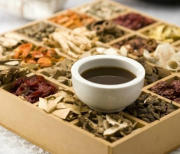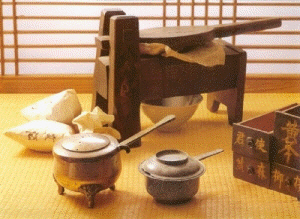solitude
Healthy Body, Beautiful Mind, and Balanced Young Life !
Eastern Medicine
Call Today for Consultation
Telephone: 760. 754. 2007
Business Hours: Mon-Fri 9am-6pm, Sat 9am-12pm
Herbal Medicine
 Herbal medicine is an integral component of traditional Eastern medicine. It is also one of the oldest (and most popular) forms of health care. Studies have shown that as much as 40% of all American adults use herbal products, with the amount of money spent on herbal remedies in this country each year in the tens of billions. The use of herbal medicine is even higher overseas, with some countries reporting a usage rate of 75% or greater.
Herbal medicine is an integral component of traditional Eastern medicine. It is also one of the oldest (and most popular) forms of health care. Studies have shown that as much as 40% of all American adults use herbal products, with the amount of money spent on herbal remedies in this country each year in the tens of billions. The use of herbal medicine is even higher overseas, with some countries reporting a usage rate of 75% or greater.
The term "herbal medicine" refers to the use of a plant's seed, berries, roots, leaves, bark or flowers for medicinal purposes. While the scientific study of herbs in the United States began just over two centuries ago, herbs and botanicals have been used to treat a wide range of health problems in Asia for thousands of years.
When used to facilitate healing in chronic, ongoing problems, herbal medicine has a great deal to offer. Studies have shown that herbal products can treat a variety of conditions, including colds, digestive disorders, insomnia, headaches, arthritis, skin disorders, asthma, and a host of other problems usually treated with pharmaceuticals and prescription medications.
More than three hundred herbs that are commonly used today have a history of use that goes back at least 2,000 years. Over that time, a vast amount of experience has been gained that has gone towards perfecting their clinical applications. According to Eastern country clinical studies, these herbs, and others that have been added to the list of useful items over the centuries, can greatly increase the effectiveness of modern drug treatments, reduce their side-effects, and sometimes replace them completely.
 The herb materials used in all these preparations are gathered from wild supplies or cultivated. There are an estimated 6,000 species in use, including nearly 1,000 materials derived from animal sources and over 100 minerals, all of them categorized under the general heading "herbs." Herbs are processed in various ways, such as cleaning, soaking, slicing, and drying, according to the methods that have been reported to be most useful. These materials are then combined in a formulation; the ingredients and amounts of each item depend on the nature of the condition to be treated.
The herb materials used in all these preparations are gathered from wild supplies or cultivated. There are an estimated 6,000 species in use, including nearly 1,000 materials derived from animal sources and over 100 minerals, all of them categorized under the general heading "herbs." Herbs are processed in various ways, such as cleaning, soaking, slicing, and drying, according to the methods that have been reported to be most useful. These materials are then combined in a formulation; the ingredients and amounts of each item depend on the nature of the condition to be treated.
In some cases, a practitioner of herbal medicine will design a specific formulation for an individual patient, which might be changed frequently over a course of treatment. In other cases, one or more formulas already prepared for ingestion without modification are selected for use. The outcome is monitored, and the determination of whether to continue the current formula, change to another, or discontinue use is made on the basis of actual versus desired outcomes and the obvious or subtle effects of using the herbs.
As a general rule, acute ailments (those that arise suddenly and are to be treated right away) are treated for a period of 1-30 days. If an outbreak of influenza or eruption of herpes virus is caught early enough, a one or two day treatment will prevent further development of the disease. In the case of acute active hepatitis causing jaundice, a treatment of 15-30 days may be necessary. For chronic diseases (those that have persisted for several months or years), the treatment time is often dependent on the dosage used and the ability of the individual to undertake all necessary steps to overcome the disease (perhaps changing diet, lowering stress, and increasing exercise). When a high-dosage therapy is applied, most chronic ailments can come under control (and some are cured) by a treatment of about three months duration. If the daily dosage is lowered (because of inability to take the higher doses), the treatment time increases-perhaps to 6-12 months. Examples of chronic ailments are autoimmune disorders and degenerative diseases associated with aging. In some cases, herbs are taken daily, for an indefinite period, just as some drugs are taken daily. This is typically the situation when there are genetic disorders or permanent damage that cannot be entirely reversed, problems of aging, and ailments that have been left for too long without effective treatment.
Oceanside Clinic: 1906 Oceanside Blvd., Suite S, Oceanside, CA 92054 T. 760. 754. 2007